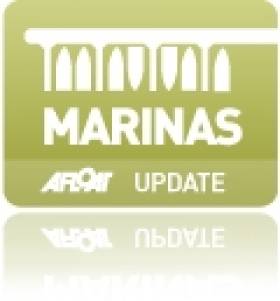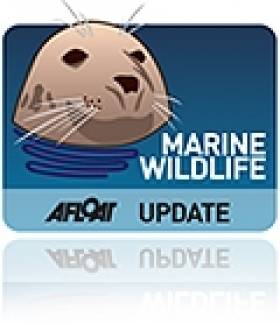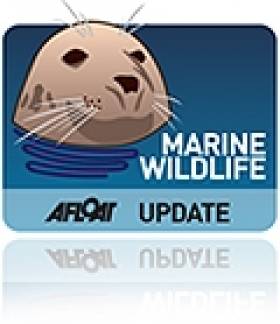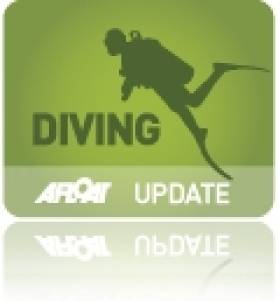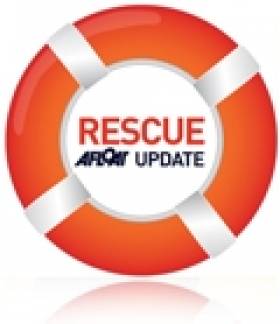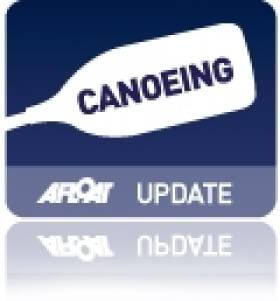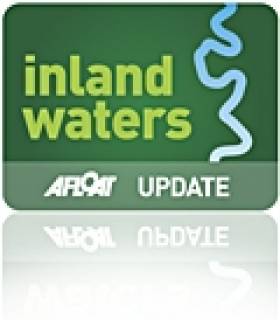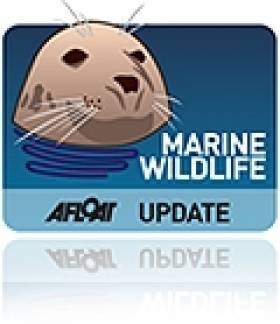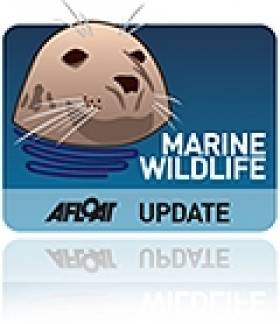Displaying items by tag: Northern Ireland
#IRISH MARINAS - Two marinas were among the 11 resorts on the Northern Ireland coast awarded Blue Flag status this year.
It marks a record year for Northern Ireland's water quality standards as the EU's benchmarks grow increasingly strict, and represents a 100% increase over three years.
Ballyronan on Lough Neagh retains its Blue Flag status, while and Ballycastle Marina achieved the accolade for the first time, as the News Letter reports.
Other stretches retaining their status are Downhill, Benone, Portstewart, Tyrella, Whiterock and Portrush's East and West Strands.
Newcomers to the Blue Flag list are Cranfield West, Murlough and Crawfordsburn Country Park in Co Down, and Castlerock in Co Derry.
Meanwhile, seven beaches across Northern Ireland attained Seaside Awards for their high standards.
Environment Minister Alex Attwood said: “Today’s increase in Blue Flag and Seaside Awards is great news for Northern Ireland’s beach users and seaside towns as they know they can expect the best when they see a Blue Flag or a Seaside Award symbol."
The News Letter has more on the story HERE.
RSPB Calls On Supporters to Back Northern Ireland Marine Bill
#MARINE WILDLIFE - The Royal Society for the Protection of Birds (RSPB) is urging its supporters in Northern Ireland to vote 'yes' for the creation of a Marine Bill for the North.
It follows a meeting last month of the Northern Ireland Marine Task Force (NIMTF) which brough together interests from across the spectrm to discuss the bill and ensure it will "deliver for all sea users", as previously reported on Afloat.ie.
The RSPB commented: "NIMTF are campaigning to have pilot projects for Marine Protected Areas and marine spatial planning put in place in parallel with the development of the Northern Ireland Marine Bill as Northern Ireland is currently three years behind the UK mainland.
"There is much work to do to inform the development of the Marine Bill in Northern Ireland and these pilots are needed for this process."
The RSPB noted that Scotland currently has four marine spatial planning pilots to inform the Scottish Marine Bill process, as well as four regional projects to set up a network of Marine Conservation Zones in England and Wales.
For more details on the Northern Ireland Marine Bill campaign visit the NIMTF webiste HERE.
Another Humpback Whale Sighting - This Time in Northern Ireland
#MARINE WILDLIFE - The Irish Whale and Dolphin Group (IWDG) has confirmed a new humpback whale sighting, this time in Northern Ireland.
According to the IWDG, this is the third consecutive year that a humpback whale has been spotted in Northern Irish waters, with this sighting being only the fourth ever validated record for the species in the North.
IWDG sightings co-ordinator Pádraig Whooley described it as "an important development [that] highlights a trend towards increased sightings of this large baleen whale species in Irish waters."
He also remarked on the "unusual" location of the sighting in the fast-running waters of the Strangford Narrows at the Ards Peninsula.
The discovery comes just a week after confirmed sighting of two humpback whales at the opposite end of the island of Ireland, off Galley Head in West Cork, as previously reported on Afloat.ie.
Diver Treated for 'The Bends' in Northern Ireland
#DIVING - BBC News reports that a man suspected to be suffering from 'the bends' after a dive in Galway was treated in Northern Ireland at the weekend.
The diver was airlifted to the decompression chamber in Craigavon by Irish Coast Guard helicopter as there was no medical team available at the closest facility in Galway.
Decompression sickness - commonly known as 'the bends' - was suspected after the man's rapid ascent from a 22-metres dive in Killary Harbour on Sunday.
Second Cruiser in a Week Runs Aground in Lough Erne
#RESCUE - Four people were rescued on Lough Erne yesterday after their motor cruiser ran aground in the second such incident in a week, the Belfast Telegraph reports.
All on board were retrieved by RNLI lifeboat from the 29ft cruiser, which is believed to have stranded on rocks beyond the marked channel of the lough.
No injuries or damage to the vessel were reported, with a Northern Ireland Coastguard spokesperson describing it as "a routine rescue".
The coastguard blamed low water levels in the lough caused by lack of rainfall in Co Fermanagh.
Waterways Ireland has posted a marine notice warning boat users of the risks posed by "the extended period of unseasonal dry weather" for Ireland's inland waterways.
In a similar incident last Friday, three adults and two children were rescued from a cruiser that stranded in shallow water on the lough.
The Belfast Telegraph has more on the story HERE.
NI Deaf Paddler To Carry Olympic Torch
#CANOEING - Irish canoe slalom paddler Matthew Sykes has secured a place on the Olympic torch relay this summer.
“I am only one of only 8,000 people selected to carry the London 2012 Olympic torch relay," the Northern Irishman told IrishCanoeSlalom.com. "It was a lovely surprise to find out that I was going to carry the Olympic torch.
"To be the first deaf person in Northern Ireland to be chosen is a real privilege and I think it will be a great experience.
"I think it will be a great day when the torch comes to this country and I am sure everyone will be down there to watch so it will be a good experience.”
Sykes will carry torch in Dundonald on 3 June. More details will be available soon on Sykes' website at www.matthewsykes.co.uk/news
As previously reported on Afloat.ie, the Olympic torch relay begins in Plymouth on 19 May and finishes at the Olympic Stadium on 27 July, and includes a visit to Dublin on Wednesday 6 June.
Environment Award for NI Angling Club
#INLAND WATERWAYS - The Tyrone Times reports that Clogher and District Angling Club has been awarded £1,000 (€1,196) by the Northern Ireland Environment Agency (NIEA) for an environmental project with local schools.
The Water Environment Community Awards recognised the club for its work with St McCartan's Primary School in Clogher and Augher Central Primary School to "investigate the signs and impact of pollution in the River Blackwater" over the coming months.
“Clogher and District Angling Club have demonstrated their commitment to protecting and improving their local water environment," said the NIEA's Dave Foster.
"I hope that their efforts over the next few months will inspire others to do their bit too and I would urge people to follow these projects and share what they see.”
Northern Ireland Marine Bill Discussed at Special Workshop
#MARINE WILDLIFE - A meeting of the Northern Ireland Marine Task Force (NIMTF) last week brought together interests from across the spectrum to discuss the new Marine Bill and ensure it will "deliver for all sea users".
The workshop at Castle Espie on Strangford Lough last Thursday 22 March saw politicians sit down with environmentalists, fishermen and wind farm developers, and engage with those responsible for drafting the proposed legislation.
According to a statement from the Ulster Wildlife Trust, which is a member of the NIMTF, the bill "provides for the creation of a network of marine protected areas to protect marine wildlife" as well as a roadmap for a more joined-up approach to the North's marine resources.
NIMTF spokesperson Ricky Devlin said: "We now need to ensure that [the bill] addresses the full range of environmental, recreational and commercial interests such as fishing, diving, electricity generation and aquaculture."
A full report of the meeting will be available shortly from www.nimtf.org
'Rogue' Anglers May Shoot Seals Threatening NI Fish Stocks
#MARINE WILDLIFE - Northern Ireland's Green Party has warned that "rogue" anglers may shoot seals that are consuming their fish stocks unless they are relocated, the Belfast Telegraph reports.
The protected seals have been getting into the River Quoile in Co Down, allegedly by way of a damaged fish pass, and decimating the area's fish stocks - much to the consternation of local anglers.
Earlier this week Leisure Minister Carál Ní Chuilín confirmed in a response to a question from Green Party MLA Steven Agnew that department officials have requested the Rivers Agency to carry out repairs on the fish pass.
But she also said that no action can be taken to remove seals from the river "without the approval of the Northern Ireland Environment Agency", adding that her department "does not have the specialist knowledge and equipment to remove the seals".
A Green Party spokesperson described the repair work as "absolutely vital because even if the seals are safely removed from the Quoile they will only make their way back in if the fish pass is not repaired.
"And a rather worrying consideration is that a very small rogue element would be prepared to shoot the seals if a solution is not forthcoming.”
Seal shootings have been much in the news as of late, with gardaí in Waterford investigating attacks on four animals in Tramore.
NI Faces Big Fine Over Horse Mussels
#MARINE WILDLIFE - Northern Ireland faces a whopping £8 million (€9.6 million) fine from the EU over its failure to protect horse mussels.
According to BBC News, "little has been done" to protect horse mussel reefs in Strangford Lough despite promises from two government departments as far back as six years ago.
Last year Afloat.ie reported on a study from Queen's University Belfast that revealed the extent of damage to horse mussel reefs in the lough by fishing activity.
Strangford Lough is officially protected as a Special Conservation Area and a Marine Nature Reserve, as well as an Area of Special Scientfic Interest, but as BBC News states, "in reality there has been little protection put in place".
Horse mussels are pivotal to the lough's ecosystem, as some 100 other species rely on the reefs formed by the mussels in the seabed for their habitat.
NI officials now have just a few months to persuade the European Commission that they are taking strong action to protect the species, otherwise they will be charged with breaking EU directives.
BBC News has more on the story HERE.


























